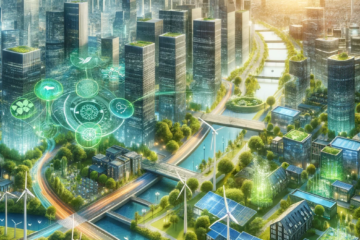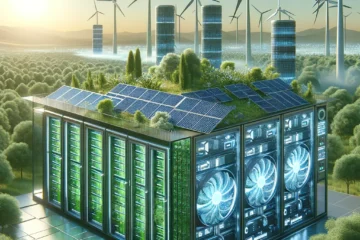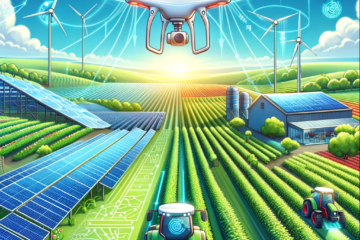Introduction
In today’s fast-paced global economy, the concept of green supply chains and eco-friendly logistics is not just a trend, but a necessary shift towards sustainability and environmental responsibility. As businesses increasingly focus on reducing their carbon footprint, the logistics and distribution sector is undergoing a significant transformation. This article delves into the world of eco-friendly logistics, exploring how green technology, sustainability, technological advancements, and IoT are revolutionizing the supply chain industry.
The Rise of Green Technology in Logistics
Incorporating green technology in logistics isn’t just about being environmentally conscious; it’s a strategic move towards efficiency and cost-effectiveness. By adopting clean energy solutions and innovative technologies, logistics companies are reducing emissions and enhancing operational performance. This section will explore how renewable energy sources and clean technologies are being integrated into transportation and warehousing, highlighting real-world examples of green technology in action.
Sustainability Practices in Eco-Friendly Distribution
Sustainability in logistics goes beyond environmental considerations; it’s about creating a balance between economic growth and ecological preservation. This section will examine the strategies logistics companies are employing to achieve sustainability. From reducing waste and optimizing routes to implementing sustainable packaging solutions, we’ll delve into the practices that are making distribution networks more environmentally friendly and socially responsible.
Technological Advancements Driving Eco-Friendly Logistics
The logistics sector is at the forefront of technological innovation. From AI-driven route optimization to blockchain for enhanced transparency, technological advancements are reshaping how goods are transported and tracked. This section will focus on the cutting-edge technologies that are enabling more efficient, transparent, and sustainable logistics operations. We’ll discuss how these technologies not only benefit the environment but also contribute to a more resilient supply chain.
IoT: The Backbone of Modern Green Supply Chains
IoT is transforming the logistics industry by providing real-time data and connectivity across the supply chain. In this section, we will explore how IoT devices and sensors are being utilized to monitor environmental conditions, track assets, and optimize resource usage. We’ll look at the role of IoT in predictive maintenance, inventory management, and enhancing overall supply chain visibility, demonstrating its critical role in building eco-friendly logistics networks.
Challenges and Opportunities in Green Logistics
While the shift to eco-friendly logistics is promising, it’s not without its challenges. From high initial investment costs to regulatory hurdles, this section will discuss the obstacles companies face in adopting green practices. We’ll also examine the opportunities that arise from overcoming these challenges, such as improved brand reputation, customer loyalty, and long-term cost savings.
The Future of Eco-Friendly Logistics and Distribution
As we look towards the future, it’s clear that eco-friendly logistics will play a pivotal role in shaping sustainable economies. This concluding section will offer insights into emerging trends and future prospects in green supply chains. We’ll discuss the potential impact of ongoing technological innovations and global cooperation in promoting more sustainable logistics practices worldwide.
Conclusion
The journey towards greening the supply chain is both challenging and rewarding. By embracing eco-friendly logistics and distribution practices, companies are not only contributing to a healthier planet but also positioning themselves for long-term success. As technology continues to evolve, the possibilities for sustainable logistics and distribution are boundless, promising a greener, more efficient future for all.




